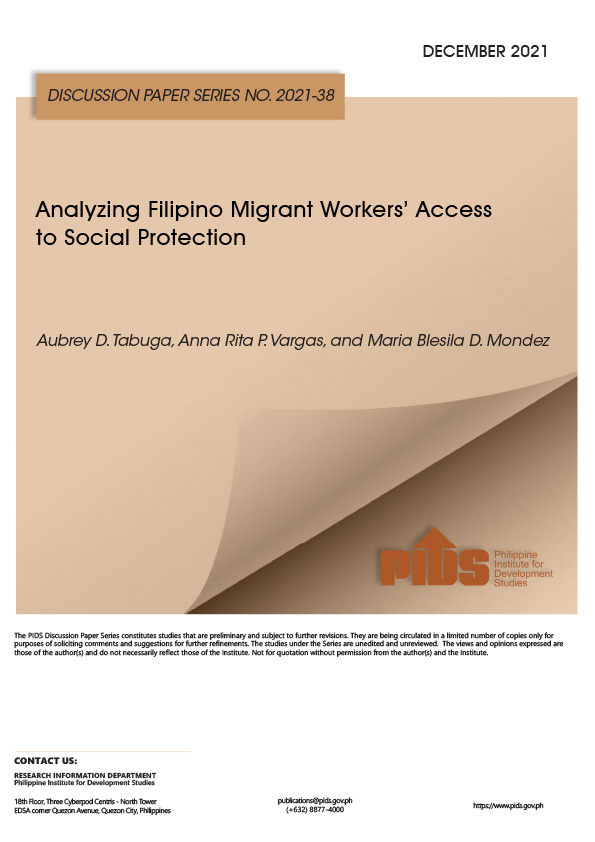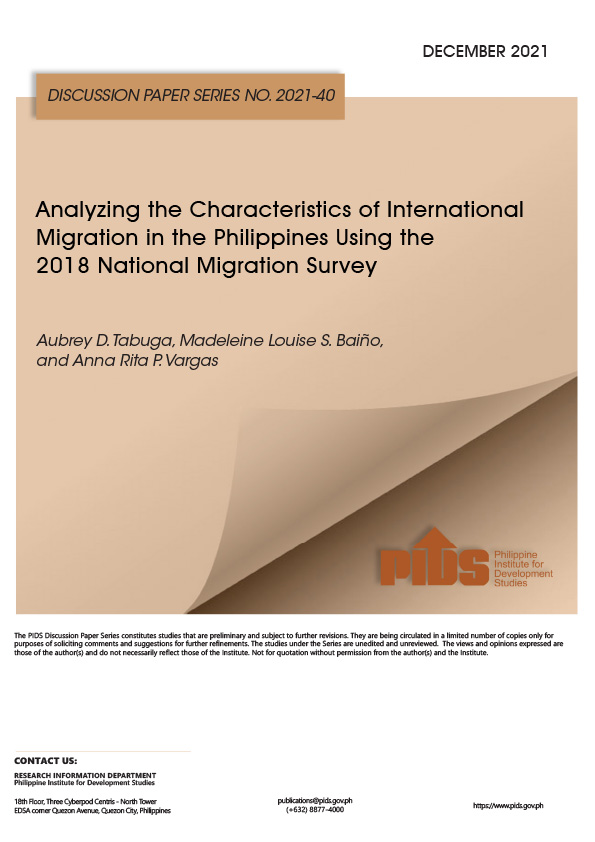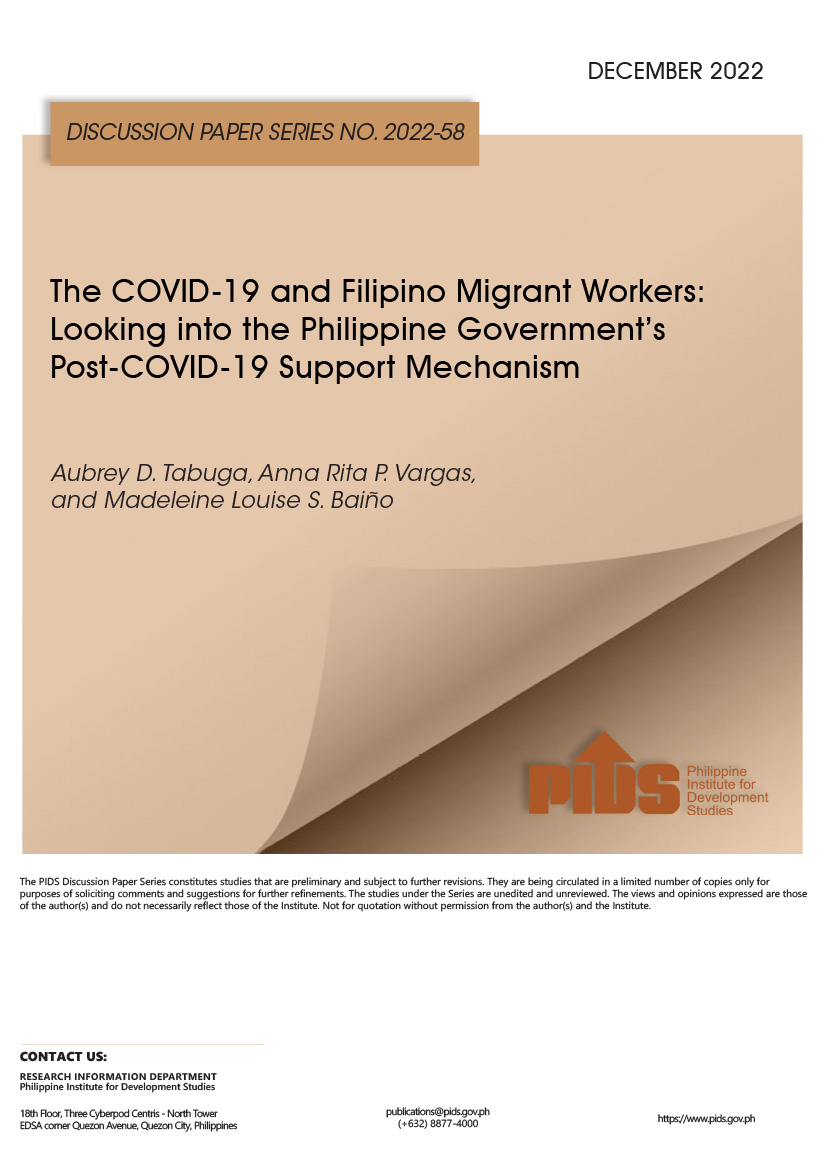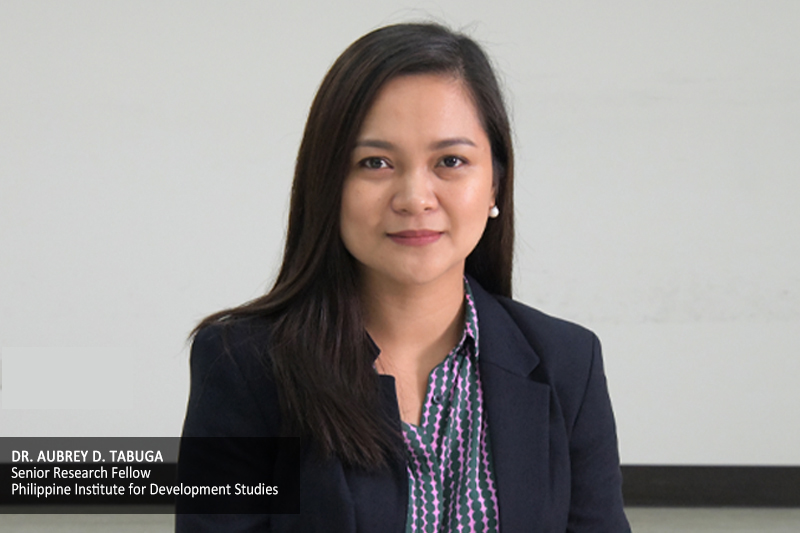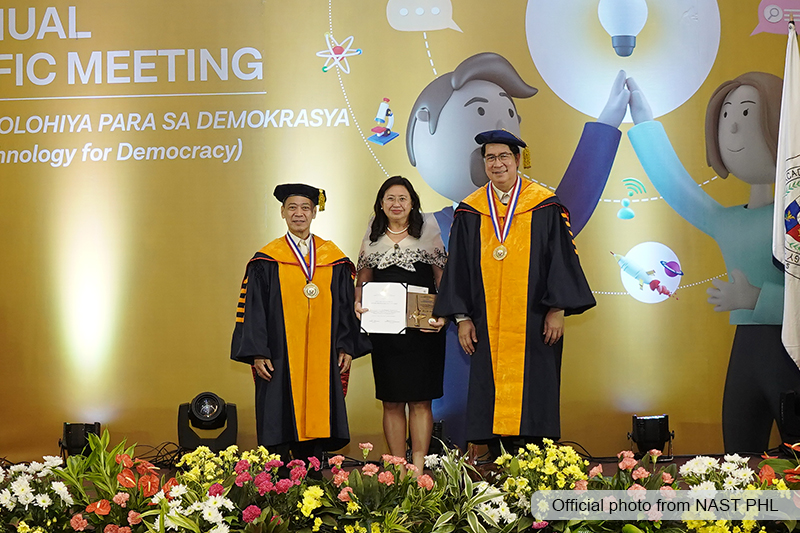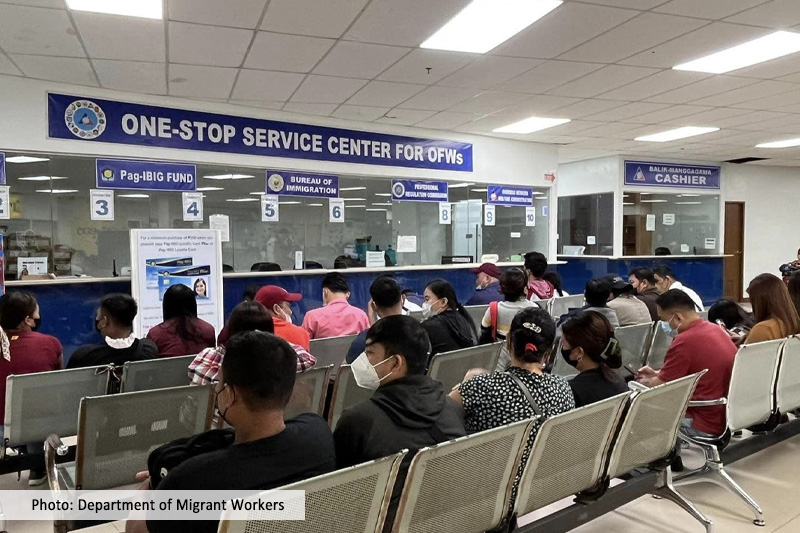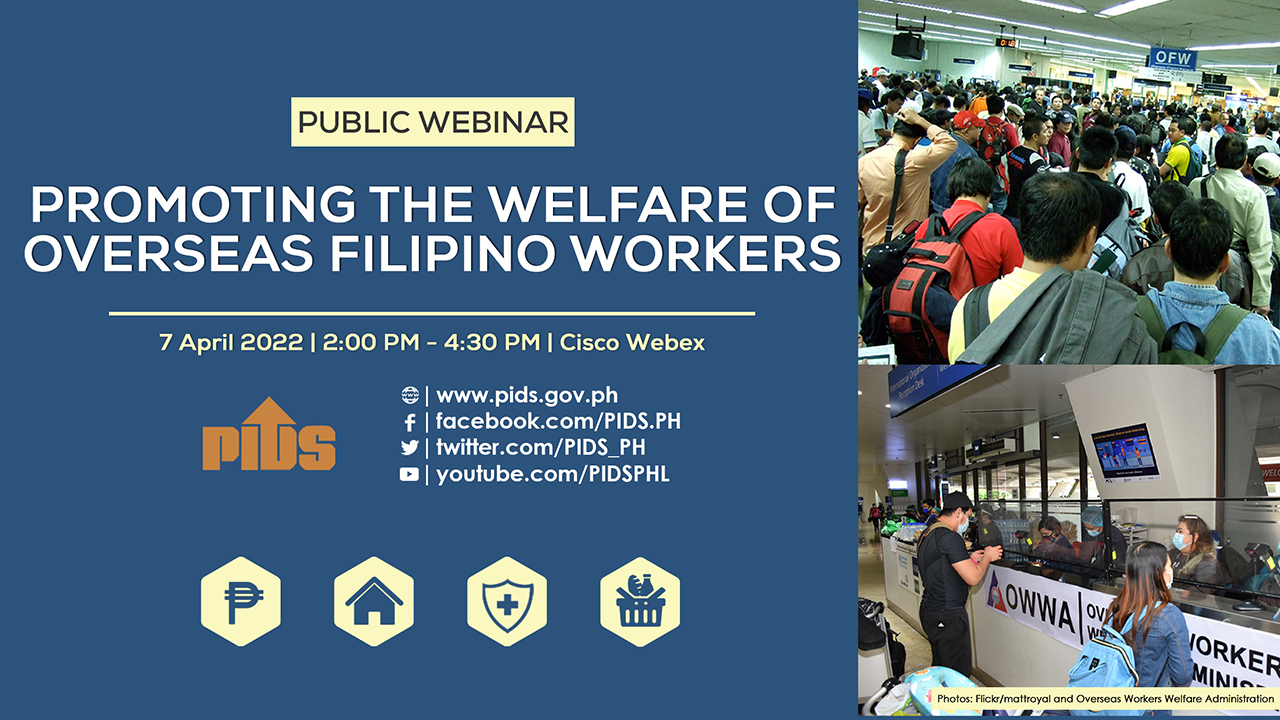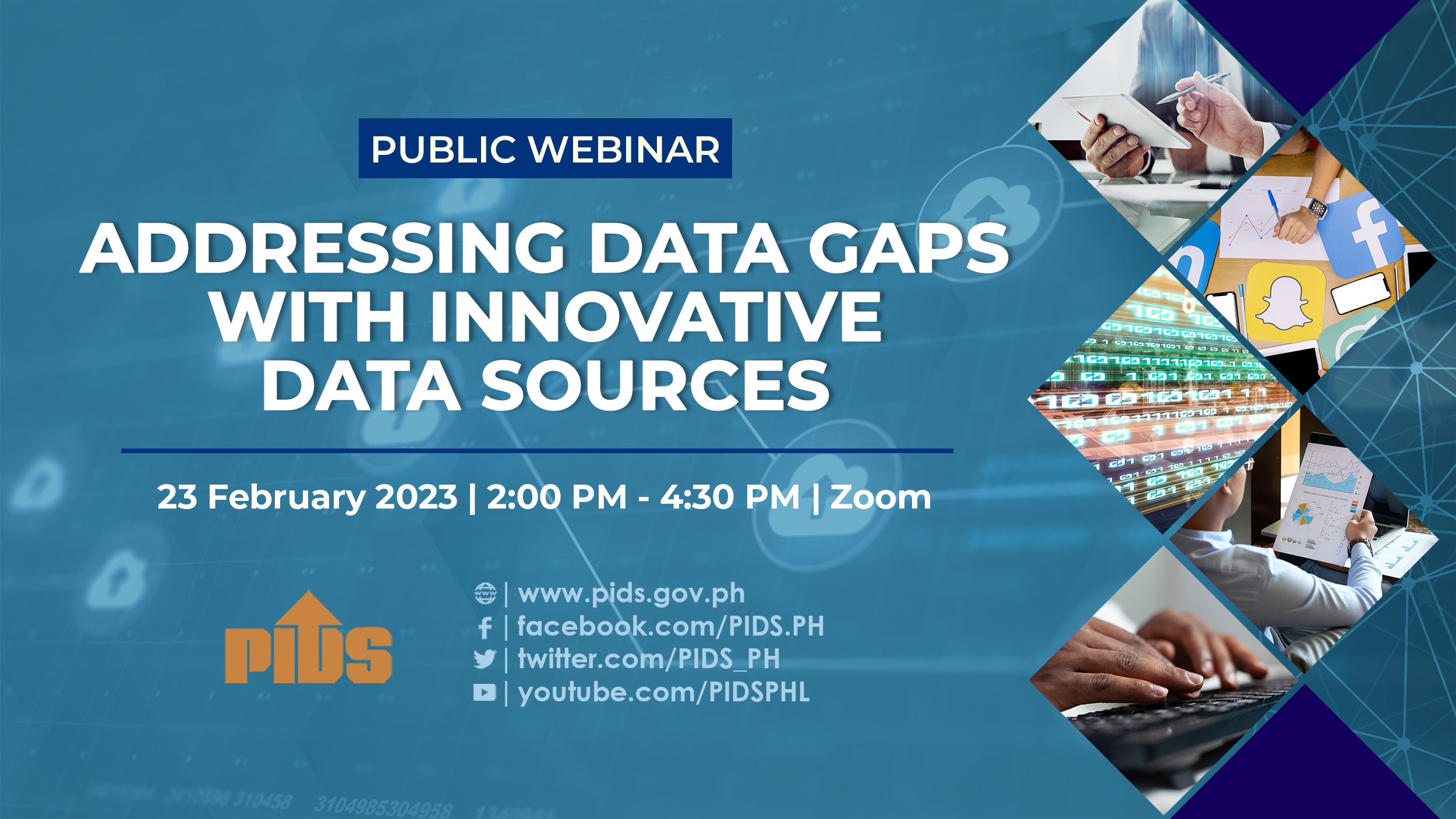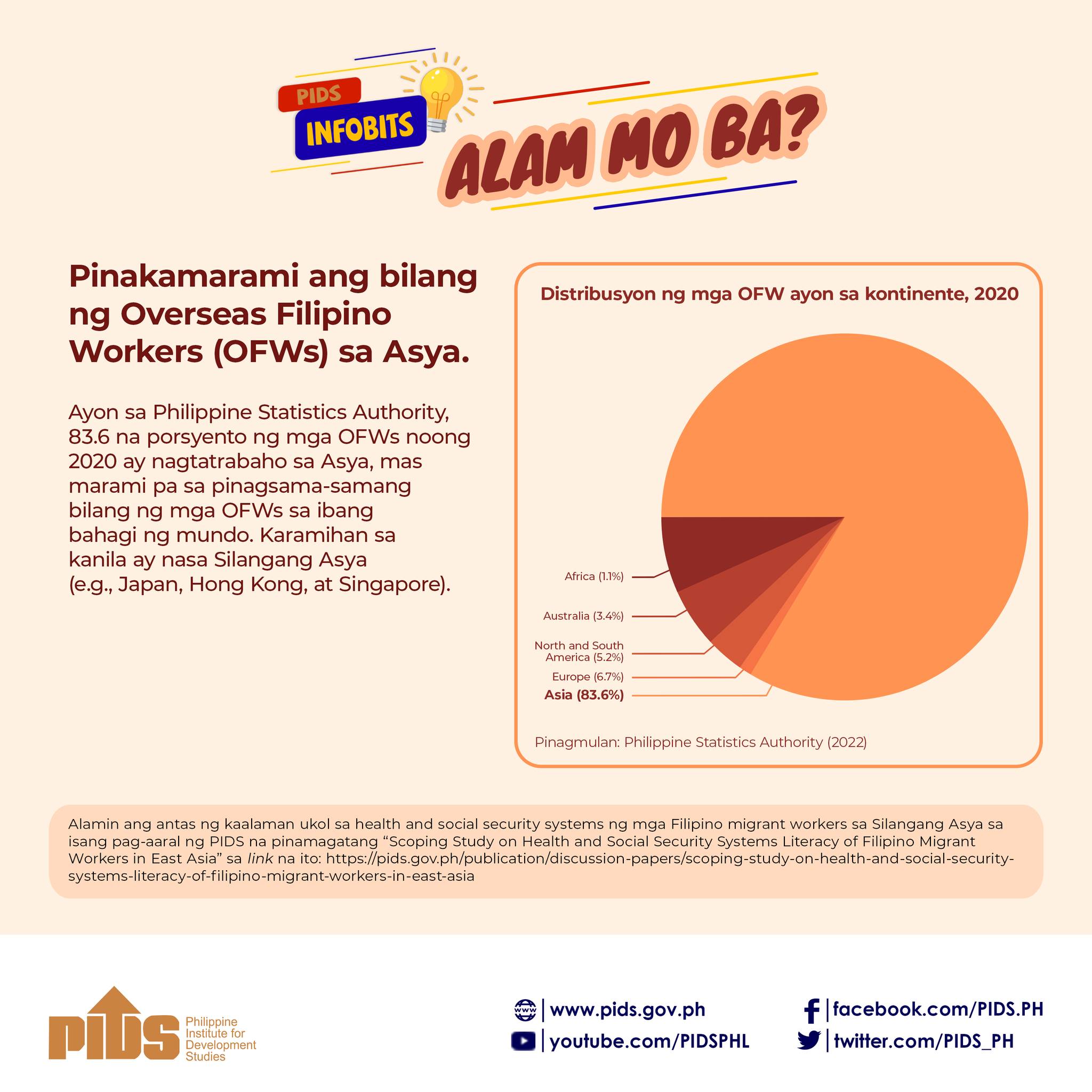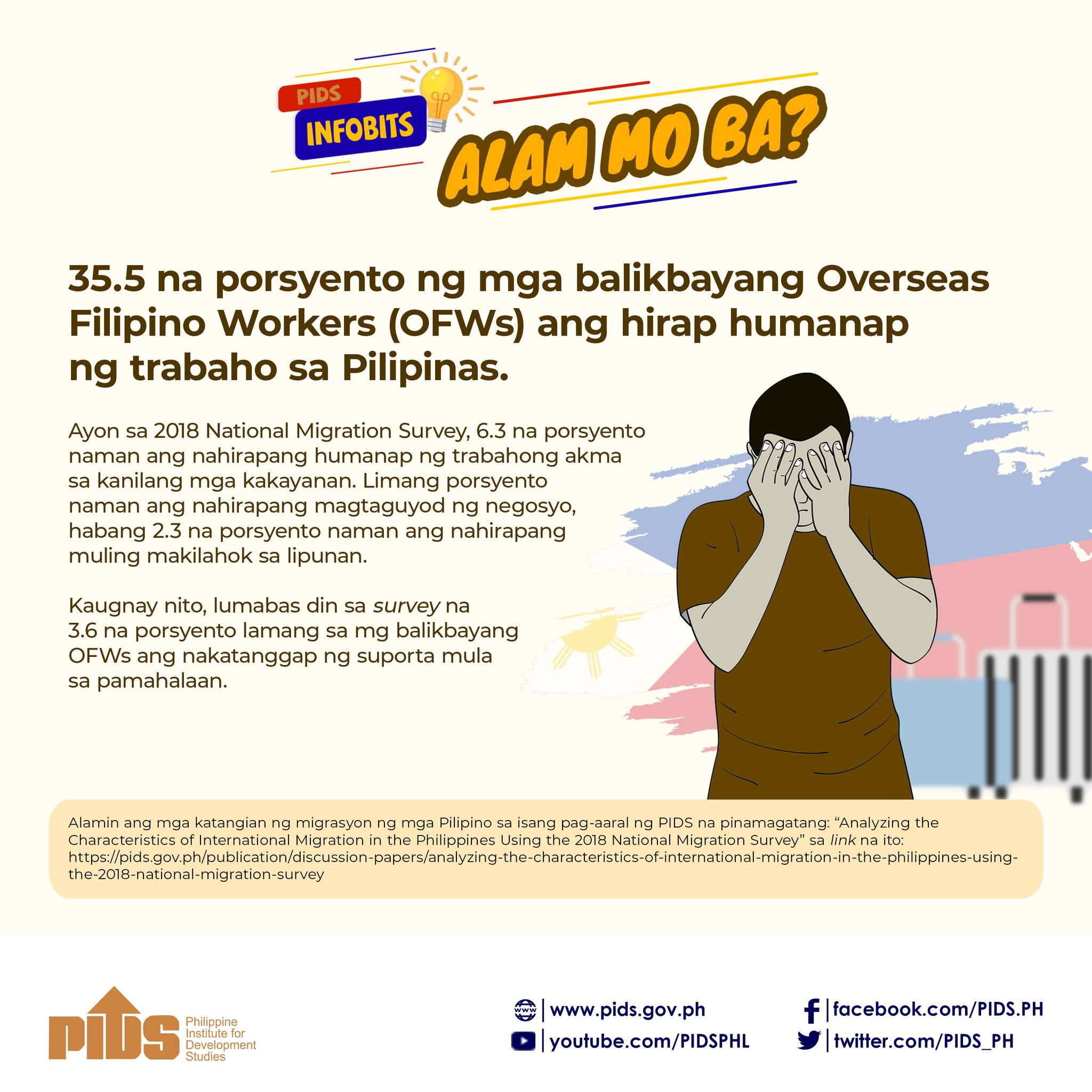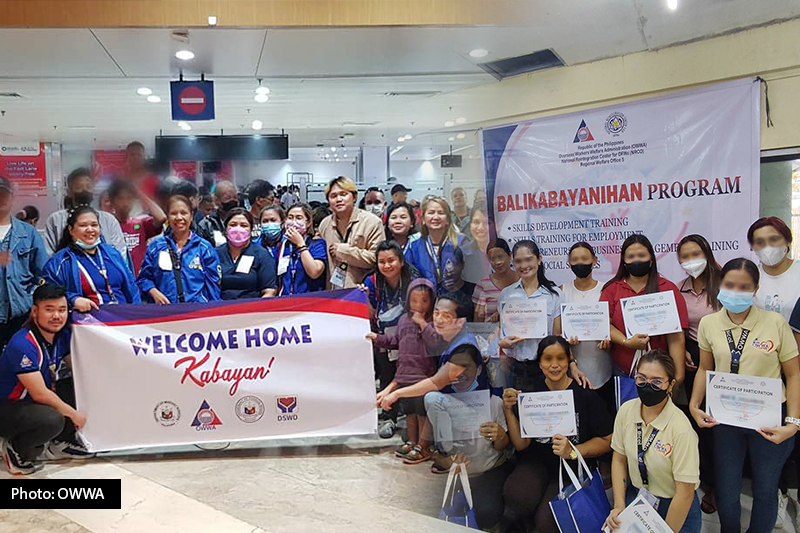
Ensuring the protection of Overseas Filipino Workers (OFWs) during deployment and crises like COVID-19 must be at the core of government programs and interventions.
This was the recommendation from a recent webinar held by the Philippine Institute for Development Studies (PIDS) in support of Migrant Workers Day. The virtual event featured two PIDS studies that tackled issues confronting OFWs: “The COVID-19 and Filipino Migrant Workers: Looking into the Philippine Government’s Post-COVID-19 Support Mechanism” by PIDS Senior Research Fellow Aubrey Tabuga and Research Analysts Anna Rita Vargas and Madeleine Louise Baino and “Scoping Study on Health and Social Security Systems Literacy of Filipino Migrant Workers in East Asia” by consultants Jocelyn Celero, Melissa Garabiles, and Evangeline Katigbak-Montoya.
Tabuga, a coauthor of the first study, shared that the Department of Labor and Employment (DOLE) and the Overseas Workers Welfare Association (OWWA) spent PHP 19.2 billion or 99.53 percent of the allotted fund for the COVID-19 response that benefitted 493,680 and 567,974 OFWs in 2020 and 2021, respectively.
The study, which examined the government’s and nongovernment organizations’ support programs for OFWs, noted that the government’s crisis response is based on its experience from the Gulf War, Israel-Lebanon Conflict, and Arab Spring—crises in the Middle East, where most OFWs are.
While noting the good practices in these interventions, Tabuga raised the need to “step up” for OFWs. “If we excel in deploying workers overseas, which is often mentioned in various texts, we must be a good model as well in properly repatriating our migrant workers,” she said.
“Repatriation is not a simple process of bringing people back to the country but a system that relies on interrelated factors. Among others, we need adequate facilities for testing or medical care, available unhampered flights and entry into the country, functional embassies or consulates, adequate accommodation or temporary shelter, and social protection,” she explained.
Meanwhile, Celero’s and Katigbak-Montoya’s presentation highlighted that OFWs receive inadequate health and social services and have a partial understanding of the health and social security systems in the Philippines and destination countries like Japan, Hong Kong SAR, and Singapore.
“Their limited knowledge of the Philippine health and social security systems is an outcome of the perceived burden of payments and their preferential attitude toward the systems of destination countries,” Celero said.
The authors added that Filipino female workers face more barriers than enablers to knowing the health and social security systems of the Philippines and their destination country.
“Philippine government agencies should strive to promote migrant literacy by expanding platforms for disseminating up-to-date information and communicating the programs that respond to specific health and social welfare needs of OFWs … across all stages of the migration cycle,” Katigbak-Montoya suggested.
Ellene Sana, webinar discussant and Center for Migrant Advocacy Executive Director, echoed the need to proactively inform and educate OFWs about social protection and social security. “We should explain what these concepts are and why they are part of the basic human rights of migrants and decent work,” she said.
Sana praised the research focusing on migrant health. “This is important, especially as we approach the 50th year of the Overseas Employment Program. Migrant health may not be a new issue, but we appreciate your work, and we hope you continue your research on this,” she said in Filipino.
Fellow discussant and OWWA Director Jocelyn Hapal welcomed the recommendations from the studies and shared that the government continues to work and address the post-repatriation needs of OFWs.
She also recognized that addressing the OFWs’ needs requires the collaboration of stakeholders from both source and destination countries. She left questions for reflection on how to make interventions for OFWs effective. “What is the full responsibility and liability of the employers, principals, or even the host government? How do we share the burden in times of crisis? These are some of the policy questions arising from the study," Hapal asked.
Watch the webinar at https://fb.watch/lewZ8X2MaO or https://youtu.be/2D8B9A9D1aM.
For more videos of PIDS events, go to https://www.pids.gov.ph/videos. ###

